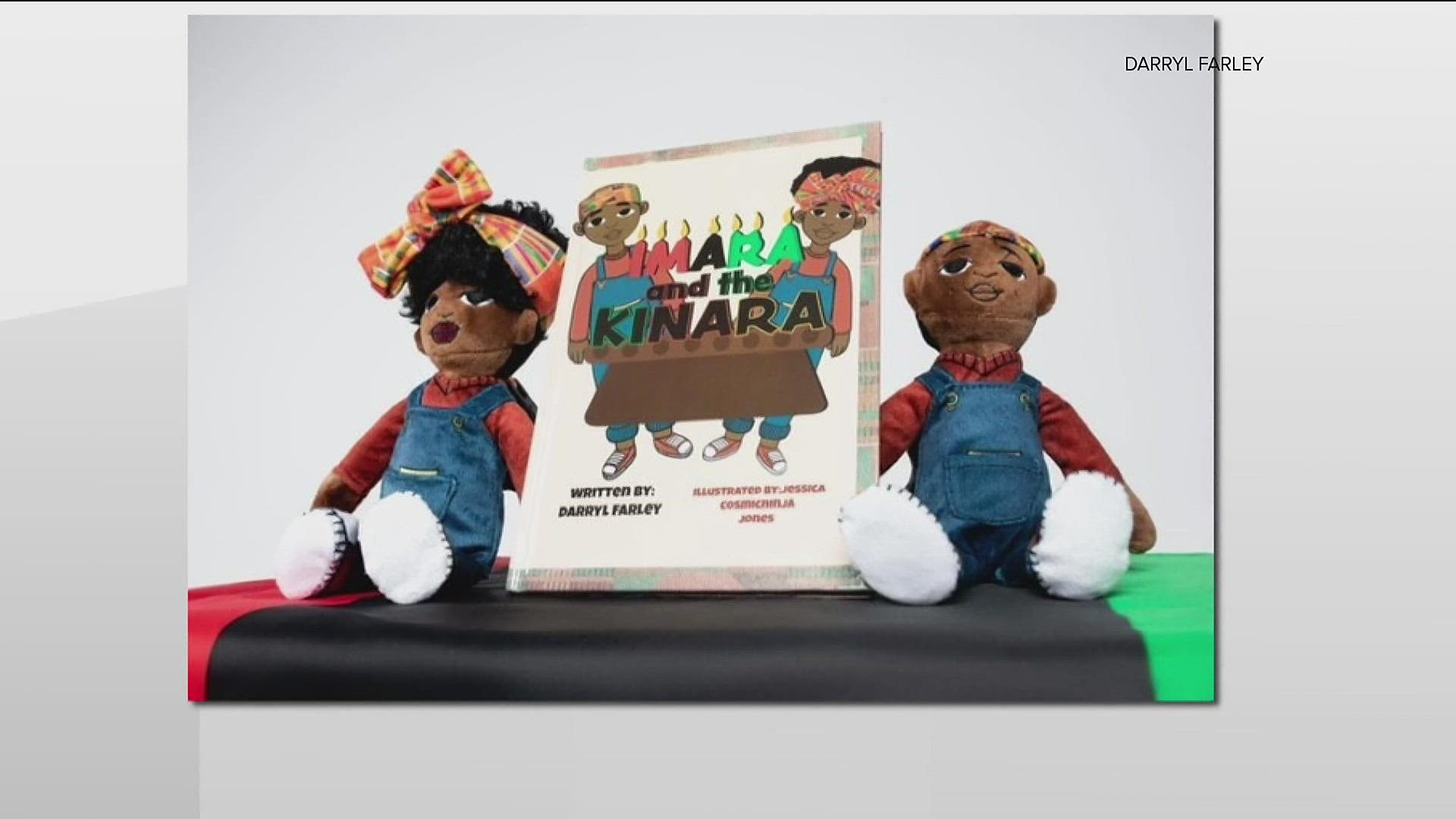ATLANTA — First came Elf on a Shelf, then Mensch on a Bench. Now, Imara and the Kinara to join their ranks.
Darryl Farley is a local teacher and author who wrote the book "Imara and the Kinara" to teach his kids – and adults – the meaning of Kwanzaa. Farley never celebrated Kwanzaa himself until he met his wife, who has celebrated the holiday her whole life.
When he went to learn more about the holiday so they could teach their kids together, he struggled to find many books – especially for children.
So, he wrote "Imara and the Kinara" to teach kids and adults about the meaning of Kwanzaa.
“It's fresh and new to me,” said Farley. “It's also for families who are wondering and inquiring about Kwanzaa, so it’s written at a children’s level so they can understand with their kids.”
Maulana Karenga introduced the non-religious holiday in 1966 following the Watts riots in Los Angeles, as he searched for a way to bring African-American communities together.
Kwanzaa lasts for a week. On each of the seven nights, the family gathers to light a candle on the Kinara, a candle holder, and discuss one of the seven principles of the Nguzo Saba.
The seven principles are:
- Umoja (Unity): To strive for and to maintain unity in the family, community, nation, and race.
- Kujichagulia (Self-Determination): To define and name ourselves, as well as to create and speak for ourselves.
- Ujima (Collective work and Responsibility): To build and maintain our community together and make our brothers' and sisters' problems our problems and to solve them together.
- Ujamaa (Cooperative Economics): To build and maintain our own stores, shops, and other businesses and to profit from them together.
- Nia (Purpose): To make our collective vocation the building and developing of our community in order to restore our people to their traditional greatness.
- Kuumba (Creativity): To do always as much as we can, in the way we can, in order to leave our community more beautiful and beneficial than we inherited it.
Farley’s book teaches those principles, and can be combined with a doll, and a Kinara to give families what they need to start celebrating.
His book can be found online here and in several local bookstores in the metro Atlanta area.

